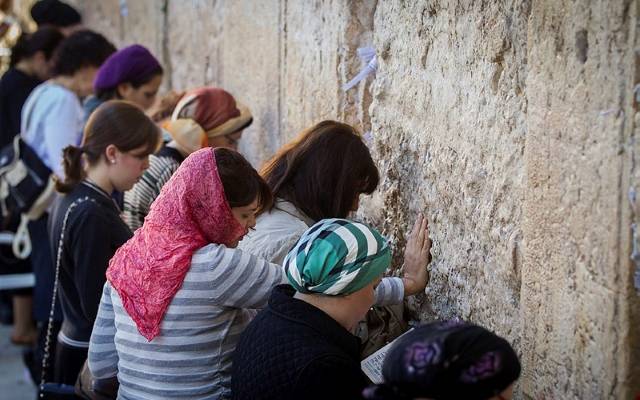There is a widespread misconception that Orthodox Judaism treats women like second-class citizens. It is simply not true.
By Rabbi Ari Enkin, Rabbinic Director, United with Israel
This week we read the Torah portion of “Vayakhel.”
Although Vayakhel and the following portion, Pekudei, are two separate Torah portions, they essentially deal with the same issue: the construction of the Mishkan, or Tabernacle – the portable synagogue that the Jews took along with them as they wandered the desert.
As with all synagogue construction projects throughout history, the success of the Mishkan was dependent on donations from the people. We are told that when Moses made the call for donations towards the Mishkan, the people came in droves, literally throwing their donations into the pot. They were enthusiastic. They were generous. They wanted God to have His own house among them.
It may very well be that the donations were so abundant because the people felt guilty for having donated towards the Golden Calf, as we read about in last week’s Torah portion.
While everyone made a donation to the Mishkan, we are told that it was the women who were even more forthcoming than the men. The women were all too happy to donate their gold and jewelry for the Mishkan. This can be compared with happened in the episode of the Golden Calf. When Aaron was forced to construct the Golden Calf, he told the men to go and ask their wives for their gold jewelry. This was nothing but a stall tactic because Aaron knew that the women were more righteous than the men and wouldn’t go along with the idea of a Golden Calf.
Although Aaron was right, and the women refused to give up their gold, the husbands found other ways to get gold for the Golden Calf. So much for that idea, but at least the women were proven righteous.
Yet the question is asked: Why was it that the women refused to give up their jewelry for the Golden Calf? Was it because they truly loved God? Was it because they loved their jewelry? Or was there another reason?
The answer can be found in this week’s reading and the story of the construction of the Mishkan. The women’s actions “this week” shed light on their actions “last week.” Put two-and-two together. If, regarding the Golden Calf, they refused to give, and now, when donations were needed to build the Mishkan,they were even more than enthusiastic than the men, it is clear that the women were holy. In fact, the Sages teach us that “the Exodus occurred in the merit of the righteous women.”
As a reward for their righteousness, women were given a monthly holiday. That’s right. Rosh Chodesh – the first day of every Jewish/lunar month is meant to be a holiday for women. Unfortunately, most women do not make use of this gift! More about that another time. There are plenty of other examples in scripture and Talmud on how the women were more pious than the men.
It is stories such as these of the women’s righteousness that remind us that not only are women not only not inferior to men, but they are simply in a league of their own. There is a widespread misconception that Orthodox Judaism treats women like second-class citizens. It is simply not true. Women are on a higher spiritual level than men – one the reasons that men need to wear a kippah, or skullcap, on their heads, and women do not.
The fact is that Judaism has separate roles for men and women. A man’s role is more communal, while a woman’s role is more reserved. This is our idea of modesty and family values. But from the first redemption in Egypt to the future Messianic redemption, it is always the women who lead the way and who will bring us to that day.
For more insights by Rabbi Enkin on this week’s double Torah portion, click on the links below.
https://unitedwithisrael.org/living-torah-make-your-deeds-match-your-words/
https://unitedwithisrael.org/living-torah-if-you-talk-the-talk-then-walk-the-walk/
https://unitedwithisrael.org/living-torah-nature-or-nurture-who-are-your-role-models/
